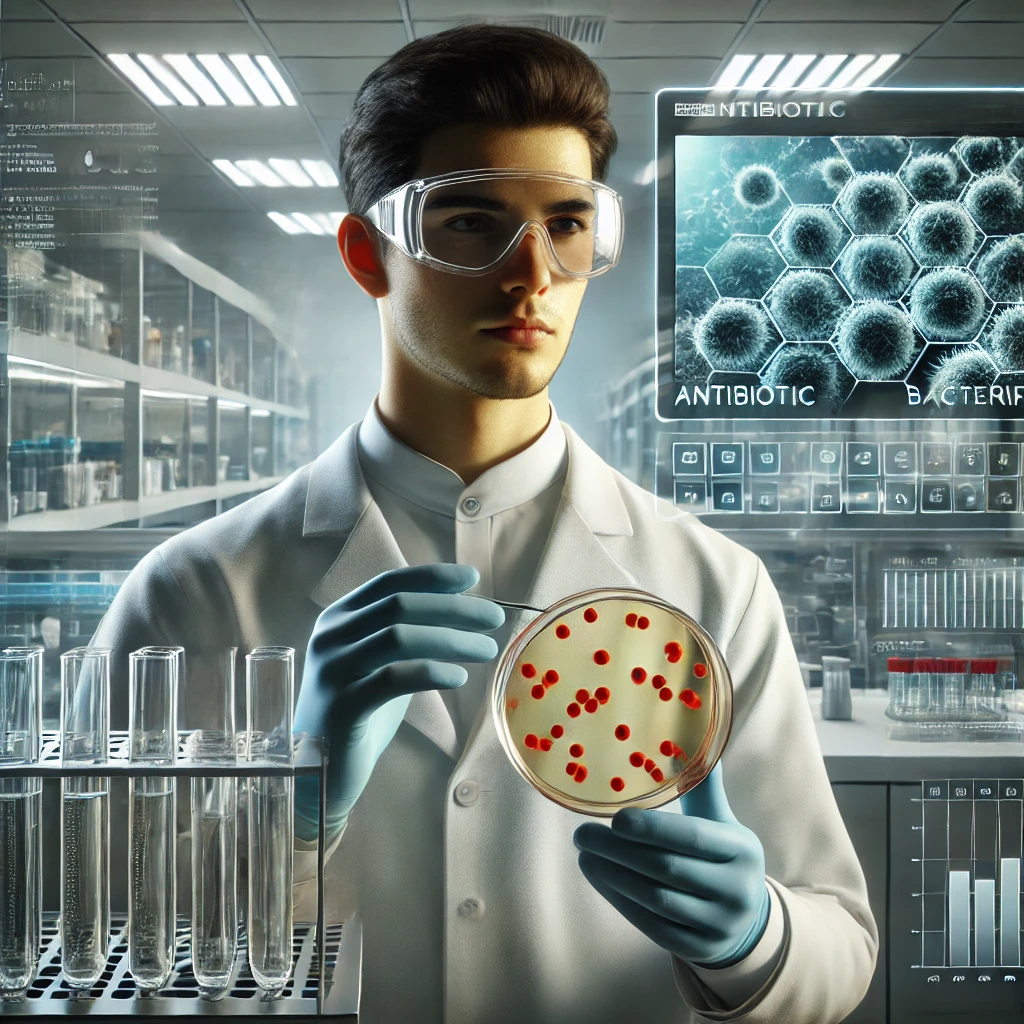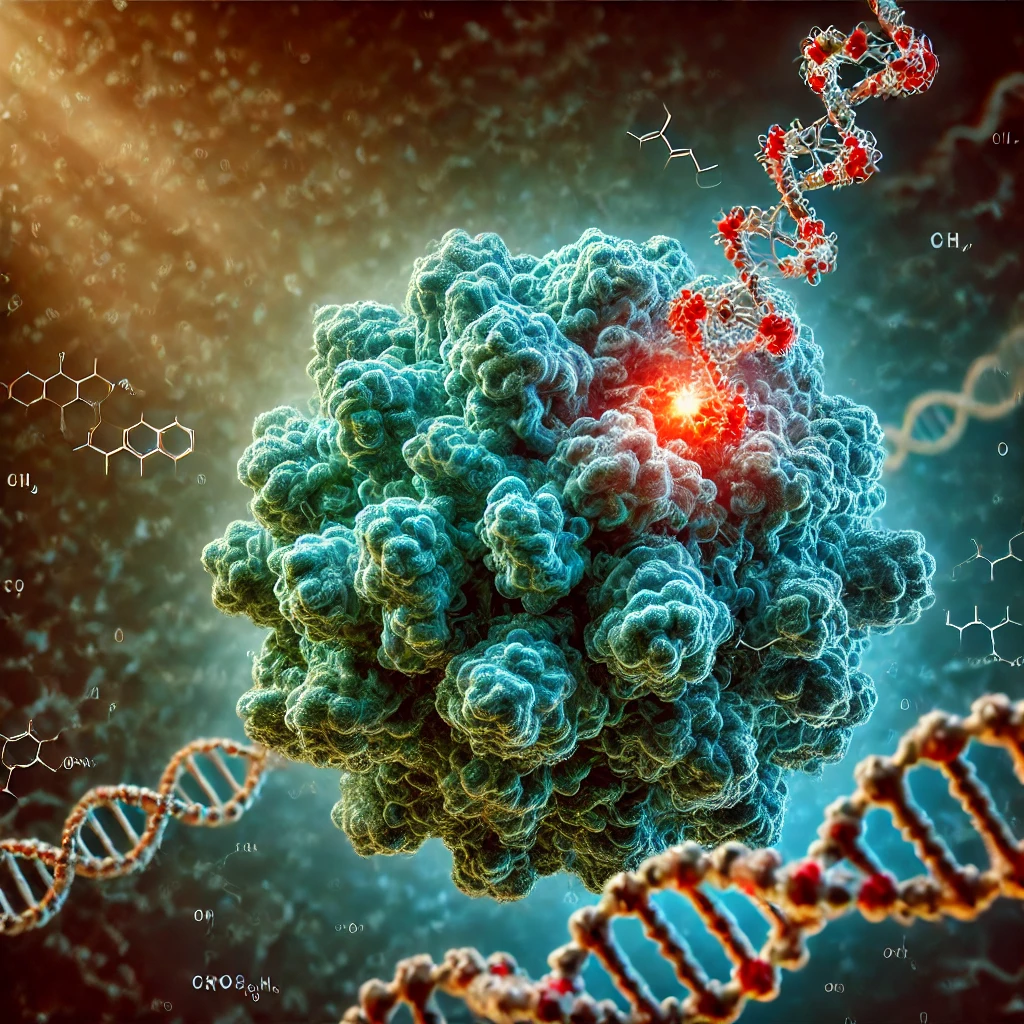
𝑨 𝑮𝒓𝒐𝒘𝒊𝒏𝒈 𝑷𝒓𝒐𝒃𝒍𝒆𝒎: 𝑨𝒏𝒕𝒊𝒃𝒊𝒐𝒕𝒊𝒄 𝑹𝒆𝒔𝒊𝒔𝒕𝒂𝒏𝒄𝒆
For decades, modern medicine has faced a silent and growing threat: bacterial resistance to antibiotics. A phenomenon that turns once-treatable infections into potentially deadly diseases. So-called “superbugs” are not science fiction creations, but clinical realities responsible for over 35,000 deaths annually in Europe alone. In Spain, infections caused by resistant bacteria are estimated to cause around 4,000 deaths each year—more than road traffic fatalities.

𝑻𝒉𝒆 𝑪𝒓𝒊𝒔𝒊𝒔 𝒐𝒇 𝑷𝒉𝒂𝒓𝒎𝒂𝒄𝒆𝒖𝒕𝒊𝒄𝒂𝒍 𝑰𝒏𝒏𝒐𝒗𝒂𝒕𝒊𝒐𝒏
In the last 30 years, the production of new antibiotics has drastically declined. Large pharmaceutical companies, discouraged by high research costs and the low profitability of antibiotics (compared to chronic treatments), largely abandoned the search for new molecules. This left humanity nearly defenseless against bacteria that develop resistance to all existing treatments.
𝑩𝒖𝒕 𝒕𝒉𝒆 𝒑𝒂𝒏𝒐𝒓𝒂𝒎𝒂 𝒊𝒔 𝒄𝒉𝒂𝒏𝒈𝒊𝒏𝒈
In the past year, optimism has returned with the emergence of new antibiotics. Nearly a dozen compounds have entered clinical phases or even received approval, representing a new wave of hope in the battle against multidrug-resistant infections.
One of the most promising discoveries is lariocidine, a molecule developed by researchers at McMaster University in Canada and Rockefeller University in the United States. This peptide, naturally produced by Paenibacillus sp. M2, has shown potent antibacterial activity, especially against the feared Acinetobacter baumannii, one of the most dangerous superbugs according to the WHO.

𝑨 𝒏𝒐𝒗𝒆𝒍 𝒂𝒏𝒅 𝒑𝒐𝒘𝒆𝒓𝒇𝒖𝒍 𝒎𝒆𝒄𝒉𝒂𝒏𝒊𝒔𝒎
Unlike many traditional antibiotics that destroy the bacterial membrane, lariocidine targets bacterial ribosomes, blocking their ability to produce essential proteins. This mechanism is especially effective because many resistant bacteria have developed shields that prevent the action of conventional antibiotics but cannot block this internal sabotage.
In preclinical tests using animal models, lariocidine has shown effectiveness even against multidrug-resistant strains. Moreover, it has not shown significant toxicity in human cells, reinforcing its potential as a safe treatment.

𝑵𝒆𝒘 𝒓𝒆𝒔𝒐𝒖𝒓𝒄𝒆𝒔, 𝒏𝒆𝒘 𝒔𝒕𝒓𝒂𝒕𝒆𝒈𝒊𝒆𝒔
The development of new antibiotics such as lariocidine is part of a broader strategy to tackle bacterial resistance. This includes the rational use of existing antibiotics, implementing hospital control policies, and promoting public-private research initiatives.
It is also crucial to educate the public on the proper use of antibiotics. Misuse and overuse—such as taking them without a prescription, not completing the treatment, or using them for viral infections—have greatly contributed to this public health crisis.
𝑻𝒉𝒆 𝒓𝒐𝒍𝒆 𝒐𝒇 𝒄𝒐𝒍𝒍𝒂𝒃𝒐𝒓𝒂𝒕𝒊𝒗𝒆 𝒓𝒆𝒔𝒆𝒂𝒓𝒄𝒉
The discovery of lariocidine also exemplifies the value of international research collaboration. Scientists from different countries have shared knowledge and resources to accelerate the discovery of solutions. This type of synergy is vital in a world where infectious diseases know no borders.
The future of treating serious infections depends on strengthening these alliances, supporting biotech startups focused on antibiotic innovation, and ensuring that these drugs are accessible to those in need, without economic or geographic barriers.
The emergence of lariocidine and similar compounds should not lead to complacency, but to greater awareness of the importance of preserving antibiotics. History has shown that every time a new drug is released, bacteria eventually find ways to evade it.

More than ever, it is essential to combine science, education, and social responsibility to ensure that these new medicines have a lasting impact and do not become short-lived solutions.
At the Centro Médico Villar e Ibarra, we remain committed to keeping the community informed about scientific progress, public health, and new ways to take better care of ourselves. The fight against resistant infections concerns us all, and every step in the right direction deserves to be celebrated and shared.


